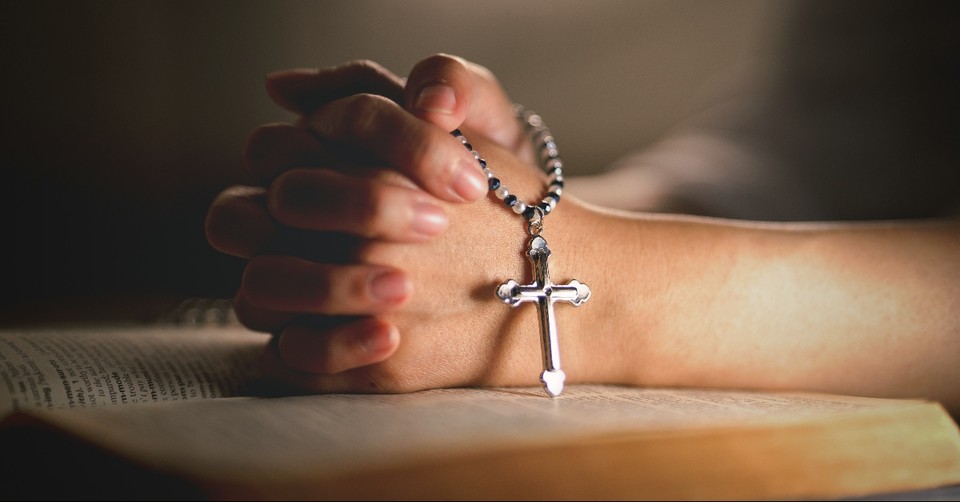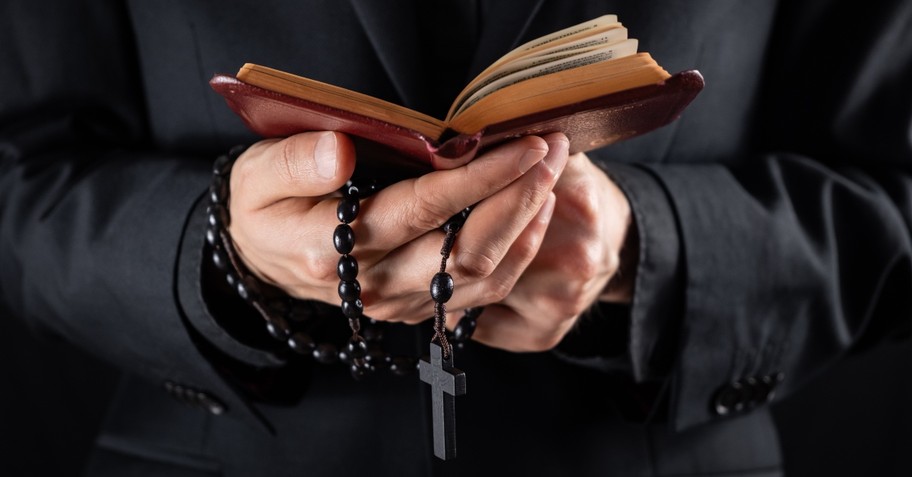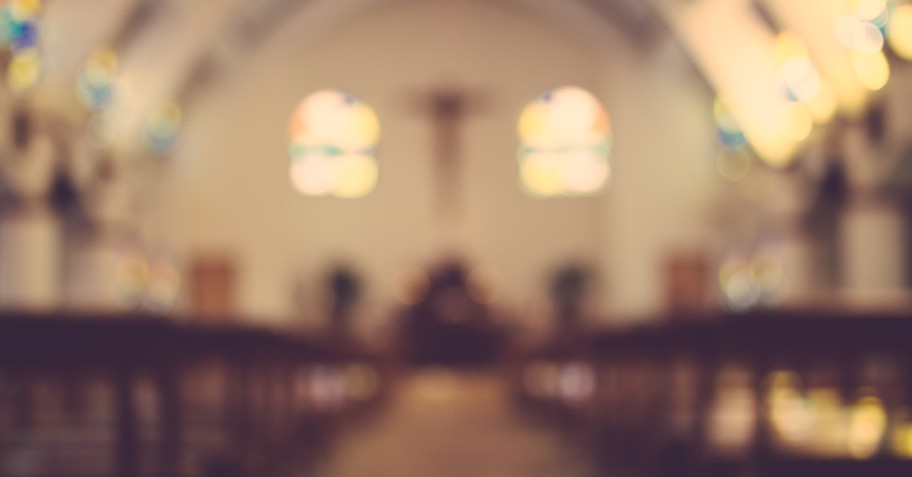What We Can Learn from a Catholic about Our Religious Differences – Part 2

Too often do I hear Protestant Christians say of Catholics, “They’re Catholic, not Christian.” And when I ask for the origin of their thoughts, they have a ready-made answer. But when I ask if they have shared their thoughts with the Catholic, the answer is always the same. A resounding “No.” And there’s no interest in talking, just declaring what is and what is not, or rather, who is and who is not Christian.
I’m grateful to be the questioning type, and that’s exactly why I decided that talking to a Catholic would be ripe for learning and educating myself. Not because I think like some of my Protestant counterparts, but because I’m eager to know more. Not only that, I want to serve as an example for other Christians that communication can serve to enlighten and bring us closer.
Our faith is stronger when we have people to stand beside. There’s plenty of reason to find differences, but reason to find similarities as well, if we do the work and look, we’ll find it.
Here is what we can learn from a Catholic about our religious differences.
If you haven’t yet, check out Part 1 of this two-part article: What We Can Learn from a Catholic about Our Religious Differences – Part 1
Photo Credit: ©iStock/Getty Images Plus/Mongkolchon Akesin
What books of Scripture do Catholics recognize that the Protestant Church does not?
J: The Catholic Bible includes 7 books - Wisdom, Sirach, Judith, Baruch, Tobit, and 1 and 2 Maccabees, as well as additional verses from Daniel and Esther – that are not present in Protestant translations. Since the Councils of Hippo (AD 390), the Catholic Church has recognized 46 books in the Old Testament. To understand and explain the history more clearly, I turned to a book of Catholic Apologetics, written by Fr. Frank Chacon and Jim Burnham in 2010. Fr. Chacon and Burnham explain that the Protestant Old Testament is based on the Hebrew canon while the Catholic Old Testament is based on the Greek canon.
During the reign of Ptolemy II Philadelphus in Egypt (285-246 BC), a translation of the Hebrew Bible into Greek began by 70 or 72 Jewish scholars (6 from each of the twelve tribes), and from this translation comes the term “Septuagint” which is Latin for “70.” The Septuagint was the translation used by Jesus and the New Testament writers, and the great majority of Old Testament quotations in the New Testament are from the Septuagint. In fact, two Protestant authors, Gregory Chirichigno and Gleason Archer (2005) found 340 places where the New Testament cites the Septuagint and only 33 places where the citation comes from the Hebrew canon.
The Hebrew canon continued to be debated, and eventually, rabbinic Judaism rejected seven books from the Hebrew canon that were found in the Septuagint. In 1529, Martin Luther adopted the 39-book of canon as the Old Testament canon because these Greek books had no Jewish counterparts. The Dead Sea Scrolls found later at Qumran in 1945, however, contained ancient Hebrew copies of some of the disputed books. It is also important to note that Martin Luther attempted to exclude Hebrews, James, Jude, and Revelation from the New Testament because these books did not agree with his doctrine, specifically on the issue of faith unaccompanied by works. Early followers of Luther did not agree with this decision, and these books remain in the Protestant Bible today.

What is transubstantiation and do you believe in this concept?
J: Transubstantiation is the transformation of substance that occurs when a priest consecrates the bread and wine during Mass. While the appearance of qualities of the bread and wine remain, the substance itself is changed into the Body and Blood of Christ. I fully believe that I am receiving the Body and Blood of Christ when I receive Holy Communion. In the Gospel of John, Jesus clearly teaches we must consume His flesh and blood as food. John 6:51 says, “I am the living bread that comes down from Heaven; whoever eats this bread will live forever; and the bread that I will give is my flesh for the life of the world.”
When the Jews questioned Jesus on this teaching, He explained, “Amen, amen, I say to you, unless you eat the flesh of the Son of Man and drink his blood, you do not have life within you. Whoever eats my flesh and drinks my blood has eternal life, and I will raise him on the last day. For my flesh is true food, and my blood is true drink. Whoever eats my flesh and drinks my blood remains in me and I in him” (John 6:52-56). The original Greek in these verses is even more telling. In Greek, the word “trogo” means “to gnaw or chew” and the word “sarx” is also used, which refers to the fleshy substance that covers our bones.
Thus, Catholics believe that Jesus was truly speaking of His own Body and Blood, and we are meant to consume them when we celebrate His sacrifice for us. While Jesus told us in John 20:29 that “blessed are those who have not seen and have believed,” there have been many Eucharistic miracles around the world that corroborate the mystery of transubstantiation. One of the most amazing occurred in Lanciano, Italy in the 8th century during which a consecrated Host took on the appearance of live cardiac flesh and coagulated blood. Studies conducted as late as the 1970s by Dr. Edoardo Linoli confirmed that the relics were indeed physical flesh and blood. Through this and the many other documented miracles of the Eucharist, God provides little area for doubt and displays His true majesty and power.
What is the Eucharist?
J: The Eucharist is the Body and Blood of Christ. Under the appearance of bread and wine, Jesus is truly present in His Body, Blood, Soul, and Divinity.
Photo Credit: ©Getty Images/Photoboyko
What is the role of the Pope in the Catholic Church?
J: The term “pope” comes from the Latin word “papa” which comes from the Greek word “papas” meaning “father.” The Pope is a spiritual father to believers of the faith and is the successor of St. Peter, the rock on whom Jesus built His church (Matthew 16:13-19). When Christ established the church, He bestowed on the Apostles continuing authority to teach, govern, and sanctify. This is why we call the Catholic Church an “Apostolic faith.” The early chapters of the Acts of the Apostles tell us that St. Peter held leadership in the early church and had authority to make a binding declaration at the Council of Jerusalem (Acts 15). Like St. Peter, the Pope helps Catholics define and explain what we already believe, specifically on matters of faith and morals. In this way, Catholics around the world look to the Pope the same way early Christians looked to St. Peter for teaching and guidance.
Is your interpretation of the Bible contingent on the Pope?
Some criticize Catholics saying that their interpretation of the Bible is contingent upon the Pope. I would argue that all believers interpret Scripture with a framework given to them by their predecessors. Be that the apostle Paul, our parents, our church leaders, whoever. What are your thoughts?
J: It is true that one of the roles of the Pope is to help Catholics further explain what we already believe as followers of Christ, however, it is important to note that the Pope cannot add, change, or subtract from existing Christian doctrine. Catholics believe that the Pope is granted papal infallibility which means that the Pope has special grace granted by God that protects him from leading the Church into error. In the same way that most Christians (including Protestants) would agree that St. Peter was infallible when he wrote 1st and 2nd Peter, we believe Peter’s successors were given the same level of infallibility. Meanwhile, Catholic doctrine does not change; it has existed for more than two thousand years, and many popes have served during this time.
The collective teachings and writings of church leadership (i.e. the Pope and Bishops) constitute the Magisterium which is a particular body of teachings that have been authoritatively proclaimed and passed down throughout the papacy. Popes may not change Catholic doctrine; they may help Catholics interpret doctrine in order to live more holy lives. Thus, to interpret the Bible’s teachings, especially on common societal issues (racism, homosexuality, abortion, etc.) I rely not only on the current Pope, but also on the Magisterium, which remains true regardless of societal pressure to change.
What do church members do if the Pope acts in a way contradictory to Scripture?
J: The concept of papal infallibility only applies when the Pope is teaching on solemn official matters of faith and morals. Papal infallibility does not extend to a pope’s private theological opinions, remarks to reporters, published books, or public actions. Papal infallibility also does not mean that the Pope cannot sin; he is human. The Pope is supported directly in his leadership by cardinals (about 200 worldwide), and more indirectly supported by archbishops, bishops, and priests around the world. The hierarchy of clergy within the church is meant to help and protect the Pope as he leads the church through issues of morality and faith.

What are your thoughts on Purgatory?
One unique Catholic belief is that of Purgatory. A political pundit I watch, Andrew Klavan, offered an explanation for its origin. He said that Christians couldn’t explain the existence of a ghost in 1 Samuel 28. If people die and go to Heaven or Hell, why would a ghost present in this passage?
He said believers tried to dismiss the idea of a ghost by discrediting the witch of Endor, but points out that regardless of how we characterize the woman, Scripture describes Samuel as a ghost. Is this how the idea of Purgatory came about in the Catholic church? What are your thoughts on the subject?
J: To understand Purgatory, one must also understand the Catholic belief in the difference between mortal and venial sin. In 1 John 5:16-17, the scripture clearly says there is sin that is deadly and sin that is not deadly: “If anyone sees his brother sinning, if the sin is not deadly, he should pray to God and he will give him life. This is only for those whose sin is not deadly. There is such a thing as deadly sin, about which I do not say that you should pray. All wrongdoing is sin, but there is sin that is not deadly.” In the Catholic Church, this “deadly sin” is referred to as mortal sin, or freely-chosen, gravely evil acts that destroy our hope of eternal life in Heaven, unless we ask for forgiveness through confession. Venial sins, meanwhile, do not kill God’s grace within us, but still hurt our relationship with Him. If someone dies in a state of venial sin, it does not mean they will go to Hell, for they are not separated from God.
In Revelation 21:27 it is said of Heaven that “nothing unclean will enter it, nor anyone who does abominable things or tells lies.” In his book, Mere Christianity, C.S. Lewis describes the need for purgatory as a final purification of our souls where we will be cleansed from all sin. Defined in the 15th and 16th centuries, Catholic Catechism on Purgatory teaches that this final purification is not the same as the eternal punishment of the damned. Matthew 12:32 says “And whoever speaks a word against the Holy Spirit will not be forgiven, either in this age or the age to come.” This implies that some sins will be forgiven after death. Sin cannot enter Heaven and sin is not forgiven in Hell. Therefore, a state of existence must exist where sins of the faithful are purged, and this state is what Catholics refer to as Purgatory.
Why do you think Catholicism gets a bad rep amongst some protestants?
J: Even as a devout Catholic, there are many mysteries of the faith that I still do not understand fully, yet I choose to believe because I trust the promises of the Lord and the Church that He instituted over two thousand years ago. I think many Protestants do not understand fully where Catholic doctrine or beliefs originated and thus, jump to conclusions about what Catholics believe and the validity of those beliefs. Even within the Catholic Church, there is dissension on many “popular” topics (abortion/contraception and homosexuality to name a few) which adds to the misunderstanding between Catholic and Christian believers. Division within the Church was never intended by God, nor did He instruct us to judge others. It is my hope that in answering some of these questions, I can appeal to Protestants who are interested in understanding the Catholic faith and lessen the societal divide between denominations.
Photo Credit: ©Getty Images/Sean824
What do Catholics gossip about relating to protestants?
J: It is my opinion that most Catholics regard Protestants as their brothers and sisters in Christ. As the Catholic Catechism teaches: “The Church knows that she is joined in many ways to the baptized who are honored by the name of Christian, but do not profess the Catholic faith in its entirety or have not preserved unity or communion under the successor of Peter. Those who believe in Christ and have been properly baptized are put in a certain, although imperfect, communion with the Catholic Church. (Catechism of the Catholic Church, Paragraph 838). I have never felt any animosity toward Protestants or considered myself a “better Christian.” I simply believe the Catholic Church teaches the whole truth. I have always enjoyed attending Protestant Bible studies, services, and youth/adult groups with friends because I hear different perspectives and advice on strengthening my relationship with the Lord. I believe most Catholics feel similarly toward their Protestant brothers and sisters.
Has a believer of another denomination ever approached you to discuss a disagreement with Catholicism?
J: In my 24 years on this earth, I have held countless discussions with Protestant friends and even authority figures on our faith differences. Most, if not all of these discussions have led each party involved to a deeper understanding of faith and Truth, even while we remain steadfast in our differences. Today, many people shy away from talking about their personal faith or asking about the faith of others, most commonly because they are afraid they will cause insult or anger, or that they will be accused of hating or shaming those who disagree with them. I believe this mindset is dangerous and unhelpful as it causes further division and dissension within the body of Christ and contributes little to our understanding. I will continue to engage in productive conversation regarding my Catholic faith because God calls us to do so – “Always be ready to give an explanation for your hope, but do it with gentleness and reverence” (1 Peter 15-16).
Conclusion
I learned a lot in my chat with Jenna, more than I could have expected. We can all learn a thing or two when we take the time to talk instead of gossip, or seek understanding instead of making quick judgments. Are there Catholics in your life, or Protestants of other denominations that you question?
Reach out to them, and start a conversation. The more you grow in wisdom and refine your faith, the more as Jenna quotes, we can “Always be ready to give an explanation for your hope, but do it with gentleness and reverence” (1 Peter 15-16).
As I was answering these questions, I pulled on terminology and historical accounts from a number of different sources as listed below:
United States Conference of Catholic Bishops, 2022
Beginning Apologetics 1, 3 & 6 (Father Frank Chacon & Jim Burnham), 2010
Why We’re Catholic, Trent Horn, 2017
Catholic Answers Copyright, 2022
Eternal Word Television Network, Inc, 2022
Franciscan Media, 2021
Saint Joseph Addition of the New American Bible (1970)
Originally published August 30, 2022.









